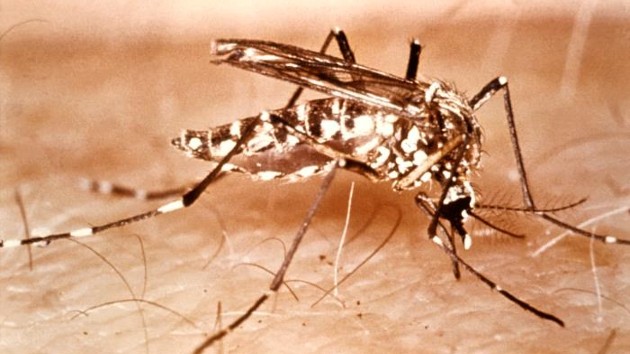(NEW YORK) — Puerto Rico has declared a public health emergency as the number of dengue fever cases continues to rise.
So far this year, there have been 549 cases reported with the plurality occurring in San Juan, according to the island’s health department. There has been a 140% increase this year in cases from Jan. 1 to March 21, compared to the same period last year, the department said.
“This year, dengue cases have exceeded historical figures,” Dr. Carlos Mellado López, the secretary of the Puerto Rico Department of Health, said in a statement. “The teams have been working on the integrated plan for prevention and control in response to arbovirus and we are going to expand the implemented response. It is important to note that the increase in cases has not only been reflected in Puerto Rico, but we have seen it throughout the region of the Americas.”
The public health emergency order will remain in place for 90 days.
The department says its response will include early detection, epidemiological surveillance and providing educational material on dengue. Dr. Melissa Marzán, an epidemiologist with the health department, also emphasized the importance of collaboration with municipalities.
“Municipal leaders have played a crucial role alongside the Department of Health, recognizing the impact that dengue has on population,” Marzán said. “We are deeply grateful for your support and we urge you to empower your communities so that they can carry out cleaning efforts around the home and thus eliminate mosquito breeding grounds.”
Dengue viruses are spread through bites from infected Aedes species mosquitoes, mostly found in tropical and subtropical regions of the world, according to the Centers for Disease Control and Prevention (CDC). These mosquitoes are also responsible for spreading Zika and chikungunya viruses.
Dengue can be caused by dengue virus 1, 2, 3 or 4, the health agency said. A person can be infected multiple times over the course of their life.
About one in four people develop symptoms lasting two to seven days, but symptoms are usually mild and include fever, rash, nausea, vomiting, muscle pain, joint pain and bone pain.
Because symptoms are not specific to dengue, they’re often confused with other illnesses, according to the CDC.
There are no specific medicines to treat dengue aside from supportive care, which includes rest, drinking fluids and taking acetaminophen. The CDC warns not to take aspirin or ibuprofen, because it can trigger gastritis or bleeding.
However, about one in 20 will develop severe dengue, which can lead to shock (damage to the body’s organs), internal bleeding and even death, although deaths are rare, the CDC said.
A dengue vaccine is approved for children between ages 9 and 16 who have a laboratory-confirmed previous dengue virus infection and who live in areas where dengue is endemic, according to the CDC. It is available in Puerto Rico and is part of the territory’s routine childhood immunization schedule, the CDC said.
Copyright © 2024, ABC Audio. All rights reserved.







